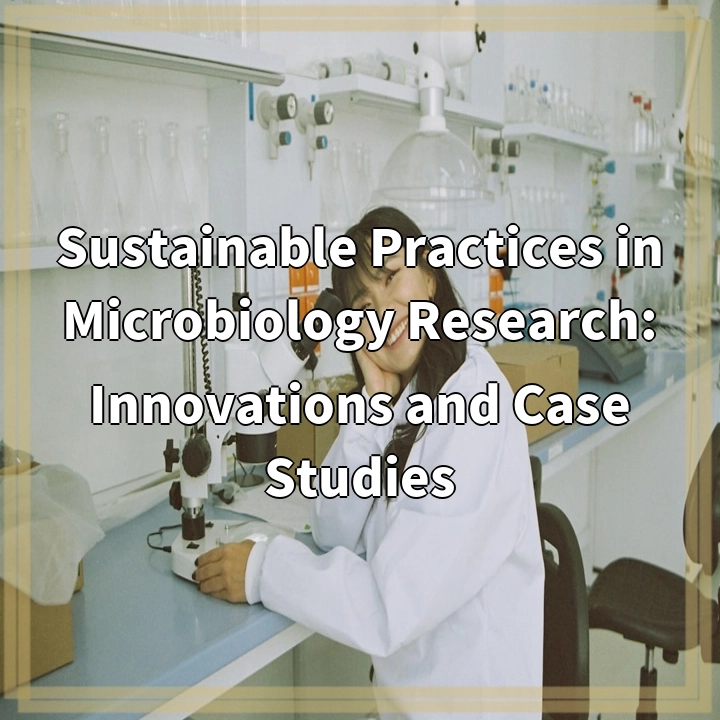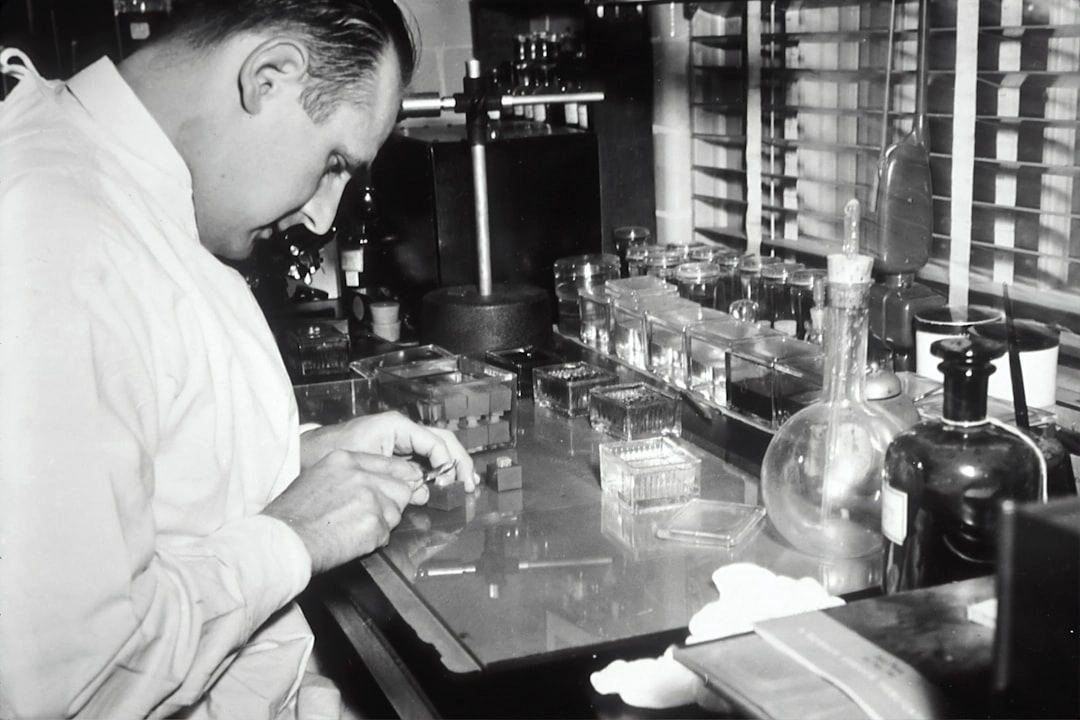
What it is:
Sustainable practices in microbiology research refer to methodologies and approaches that aim to reduce environmental impact while enhancing the efficiency and effectiveness of microbiological studies. These practices prioritize the use of renewable resources, minimize waste, and integrate eco-friendly techniques throughout research processes. Key innovations include using biodegradable materials, adopting energy-efficient technologies, and implementing sustainable laboratory practices. These strategies help to ensure that microbiology research not only contributes to scientific knowledge but also supports the preservation of the ecosystem.
Key Innovations in Sustainable Microbiology Research
Recent innovations in sustainable microbiology include the development of green chemistry methods, which aim to reduce hazardous waste and improve laboratory safety. Additionally, the use of bioinformatics and computational tools allows researchers to analyze data more efficiently, minimizing the need for extensive physical experiments. Moreover, the cultivation of microorganisms using alternative, sustainable substrates is gaining traction as a means to reduce reliance on traditional sources that may contribute to environmental degradation.
Real-world problems
Despite the promising advancements in sustainable practices, several real-world problems persist in the context of microbiology research. One significant challenge is the ongoing reliance on non-renewable resources and traditional methods that generate considerable waste. Many laboratories still use petrochemical-based materials and disposables, contributing to plastic pollution and environmental harm.
Impact of Resource Intensity
The resource intensity of microbiology research can also lead to significant carbon footprints, primarily due to energy consumption and the materials used in laboratory settings. Laboratories often operate high-energy equipment and use refrigeration extensively, amplifying their environmental impact. The push for energy-efficient practices is crucial to address these concerns, but many institutions face financial and logistical barriers to adopting such changes.
Cultural and Institutional Resistance
Additionally, there is a cultural and institutional resistance to adopting sustainable practices, as traditional methodologies are deeply rooted in scientific research. Researchers may hesitate to change familiar processes due to fears about reliability, results, and funding. Overcoming these barriers requires a shift in mindset, emphasizing the importance of integrating sustainability into research objectives and funding proposals.
Pressure on Funding and Resources
Finally, funding structures often prioritize faster results, which can inadvertently promote less sustainable practices. Research incentives may overlook sustainability objectives, creating a disconnect between environmental consciousness and scientific advancement. Bridging this gap is essential for fostering a new generation of researchers committed to sustainable practices in microbiology.
Toward More Sustainable Microbiology Research
Addressing these real-world problems requires collaboration among researchers, institutions, and funding agencies to prioritize sustainable practices. Initiatives focused on education, training, and resource sharing can promote a culture of sustainability in microbiology research, ultimately leading to more innovative and environmentally friendly outcomes.

Solutions for Sustainable Practices in Microbiology Research
To effectively address the challenges associated with sustainability in microbiology research, several solutions can be implemented. These solutions involve collaboration, education, and innovative practices that reduce environmental impacts while advancing scientific knowledge.
Adopting Green Chemistry Methods
One of the primary solutions is the adoption of green chemistry methods that minimize hazardous waste and enhance laboratory safety. Researchers can explore eco-friendly alternatives in their experimental designs, reducing reliance on traditional chemical processes that may harm the environment.
Utilizing Renewable Resources
Incorporating renewable resources and biodegradable materials for laboratory supplies is essential. Researchers should prioritize sourcing materials from sustainable suppliers and developing protocols that emphasize the use of eco-friendly options, thereby decreasing plastic waste and environmental degradation.
Implementing Energy-Efficient Technologies
Improving energy efficiency in laboratories can significantly reduce the environmental footprint of microbiology research. Investing in energy-efficient equipment and optimizing operational practices, such as scheduling and maintenance, can lead to substantial energy savings, lowering overall resource consumption.
Enhancing Education and Training
To cultivate a culture of sustainability, education and training programs must emphasize the importance of sustainable practices in microbiology. Workshops, seminars, and courses can provide researchers with the tools and knowledge necessary to implement environmentally friendly methodologies in their work.
Fostering Collaboration and Resource Sharing
Collaboration among researchers, institutions, and funding agencies is vital for fostering sustainable practices. Establishing networks for resource sharing, best practices, and collective initiatives can encourage the adoption of sustainable approaches across the microbiology community.
Aligning Funding with Sustainability Goals
Funding agencies should align their grant criteria with sustainability objectives to incentivize researchers to prioritize eco-friendly practices. By supporting projects that incorporate sustainable methodologies, funding bodies can help shift the focus towards environmentally responsible scientific endeavors.
Inspiring a Shift Toward Sustainability
By implementing these solutions, the field of microbiology can move toward a more sustainable future. Emphasizing eco-friendly approaches not only benefits the environment but also enhances research outcomes, ensuring that the science of microbiology contributes positively to both human health and ecological balance.















